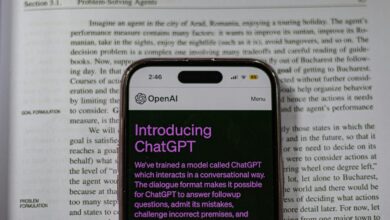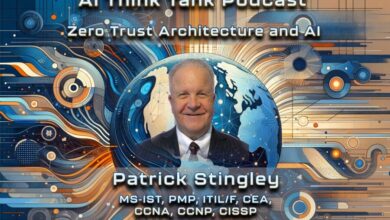NMDSI’s second annual AI Symposium brings data science community together to explore the ever-evolving landscape of AI
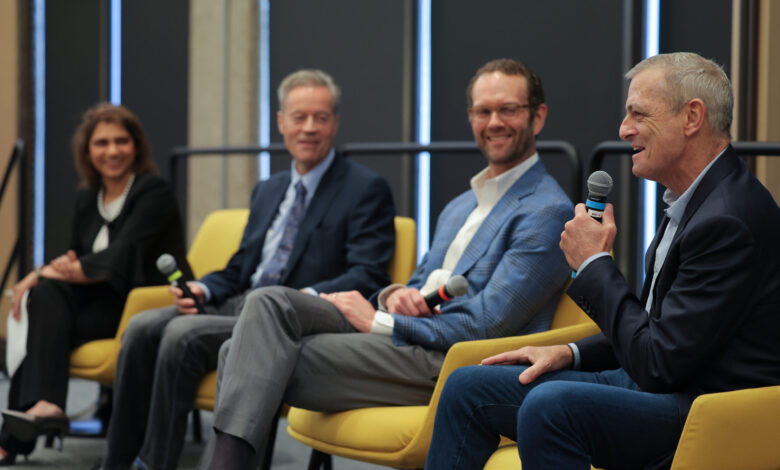
This story was originally published on the NMDSI website.
On Wednesday, April 24, the Northwestern Mutual Data Science Institute hosted its second annual AI symposium, Bridging Innovation & Impact. Throughout the day, the NMDSI welcomed more than 700 in-person and virtual attendees, 24 speakers and 31 poster presenters.
The symposium, hosted at the University of Wisconsin-Milwaukee, brought together community leaders, experts in data science and AI, faculty and students from Marquette University and UWM, and Northwestern Mutual employees for a series of presentations and discussions focused on topics centered on the ever-evolving landscape of artificial intelligence.
Jonathan Stark, executive director of the NMDSI, kicked off the symposium by welcoming guests, sharing the mission of the NMDSI and highlighting the importance of the second annual AI symposium.
Dr. Anju Gupta, vice president of data science and analytics at Northwestern Mutual, moderated a fireside chat with NMDSI leaders, including:
- Dr. Michael R. Lovell, president of Marquette University
- Dr. Mark Mone, chancellor of the University of Wisconsin-Milwaukee
- Christian Mitchell, executive vice president and chief customer officer of Northwestern Mutual
NMDSI leaders reflected on the last five years of the NMDSI partnership and highlighted various challenges and successes of this unique partnership. One of the most notable accomplishments mentioned was the creation of the NMDSI Center of Excellence Initiative in 2023, through which the NMDSI awarded more than $600,000 in research funding to faculty and students from UWM and Marquette.
Additionally, they shared their goals for the future of the NMDSI, and each emphasized how the partnership can provide the best data science education to UWM and Marquette students to create a strong tech ecosystem in Milwaukee and beyond. “The NMDSI has been and will continue to be an incredible talent pipeline for NM and all of Southeast Wisconsin,” Christian Mitchell said.
Morning keynote address
Dr. Chris Wiggins, associate professor of applied mathematics at Columbia University
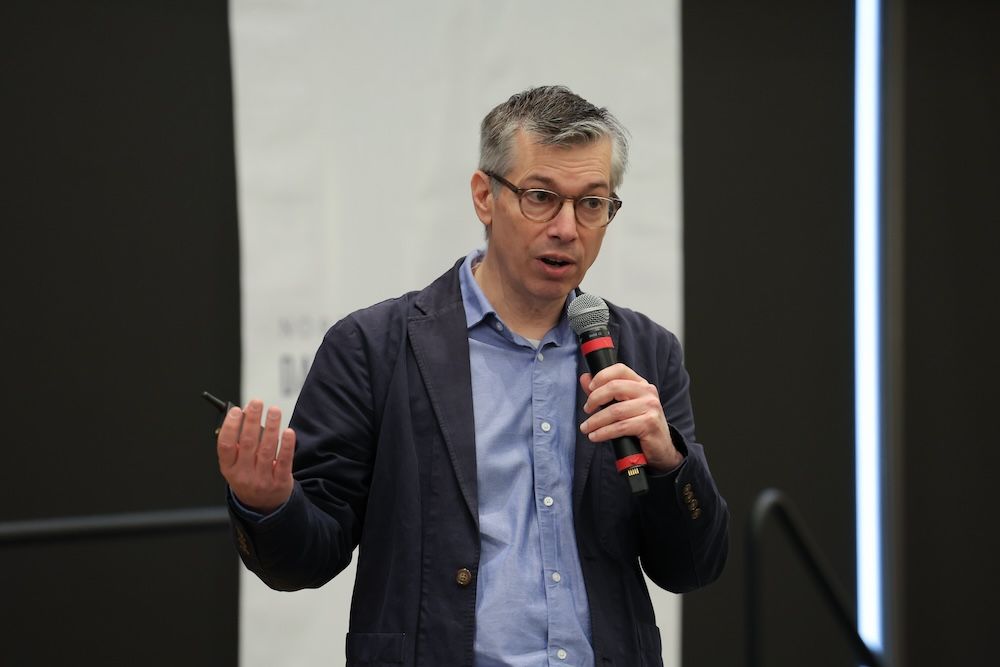
Serving as the morning keynote speaker was Dr. Chris Wiggins, associate professor of applied mathematics at Columbia University and co-author of “How Data Happened: A History from the Age of Reason to the Age of Algorithms.” Wiggins gave a talk centered around the evolution of his book. He explained how, despite the data science field continuously evolving, many skills have remained crucial. “The ability to communicate the results of your analysis in a clear and concise fashion is one of the necessary skills that has remained the same,” Wiggins said.
Pursuit of excellence in AI: education to career
Dr. Sheikh Iqbal Ahamed, Dr. Tanya Joosten, Dr. Justin Kurland, and Dr. Phyllis King (moderator)
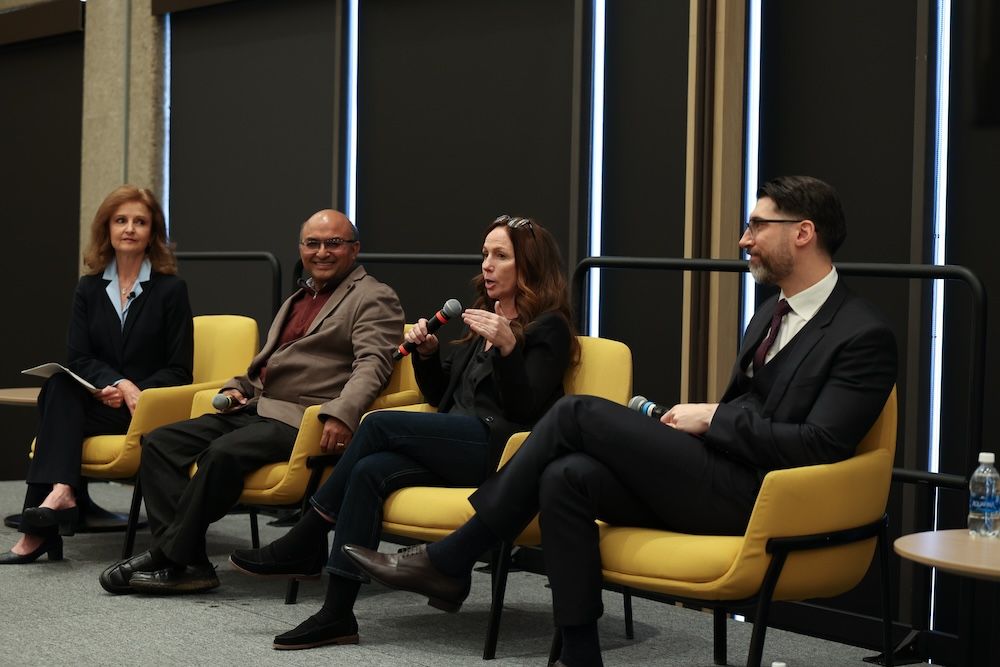
The day’s first panel explored how to navigate the ever-evolving landscape of AI within higher education and industry. Speakers emphasized the importance of catering higher education courses to prepare students for the workforce and called out the impact partnerships between industry and academia, such as the NMDSI, have on building an effective and informed workforce.
AI for social impact
Audra Brennan, Dr. Majeed Hayat, Dr. Mohammad Habibur Rahman, and Dr. Sabirat Rubya (moderator)
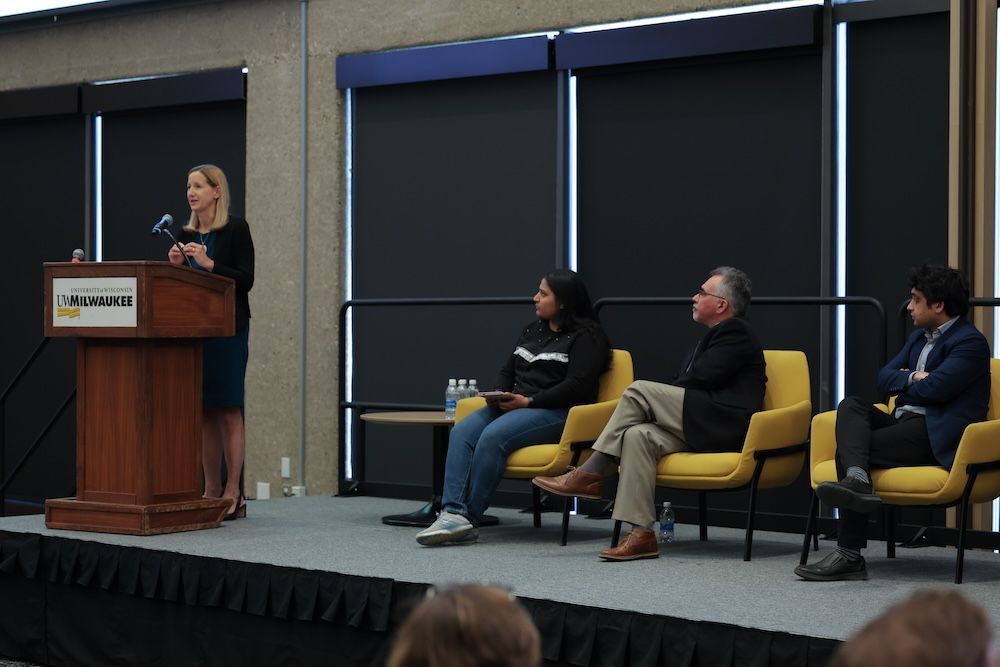
Experts showcased examples of how AI is being harnessed to address pressing societal challenges, from health care and education to environmental sustainability and social justice. During this lightning talk session, presenters showcased data-driven projects and their impact on the community.
One presenter, Dr. Mohammad Habibur Rahman, shared an update on his NMDSI-funded project, “Speech-Mediated Robot-Assisted Therapy.” He explained how he uses this funding to revolutionize rehabilitation therapy and enhance the quality of life for patients.
AI driven creativity
Dawn Behrens, Dr. Gerry Canavan, Dr. Nathaniel Stern, and Dr. Suzanne Boyd (moderator)
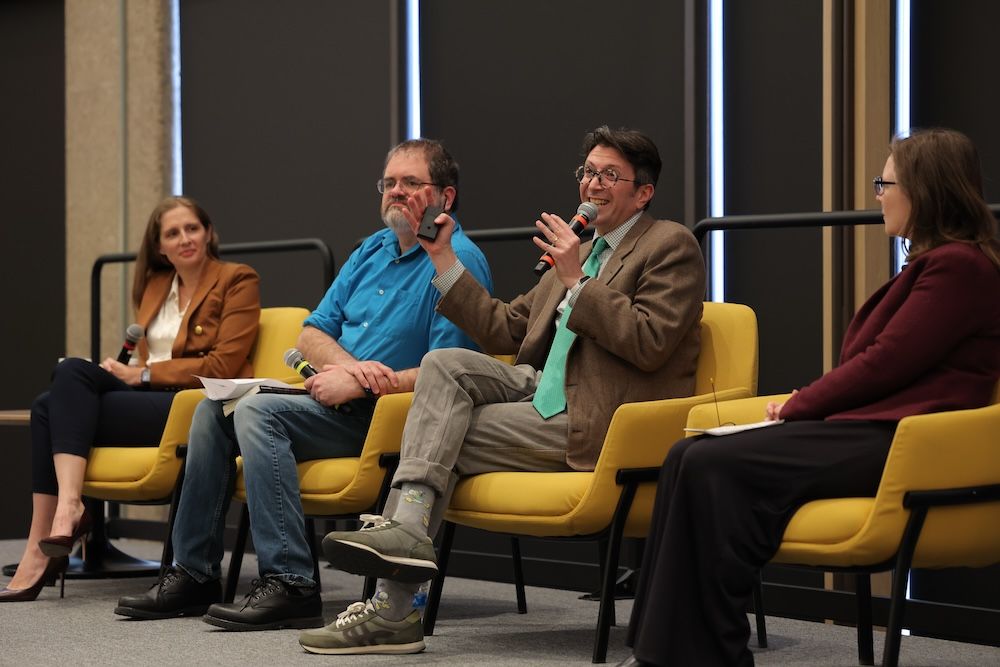
This panel discussion focused on the intersection of AI and creative expression. Business and academic experts explored AI’s role in generating creative outcomes. They provided insights into the nature of creativity in the world of AI, emphasizing that while emerging technologies will continue to change the job landscape, they will not entirely end all creative occupations.
Responsible AI: Navigating bias, policy and governance
Dr. Scott Schanke, Jon Toldt, Dr. Michael Zimmer, and Dr. Amber Wichowsky (moderator)
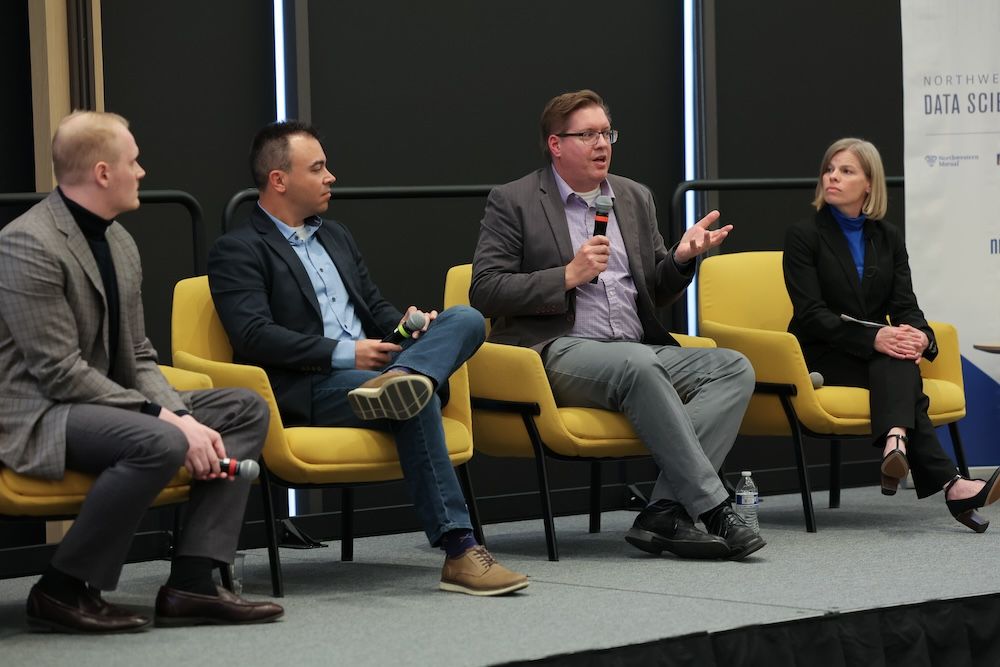
The final panel presentation of the day explored the critical aspects of building and deploying AI systems ethically. Speakers addressed topics such as bias, transparency and accountability. Panelists discussed the responsible use of AI technology within the public policy and privacy/governance industries while each stressing the need for critical reflection and taking time to carefully consider and understand the ethical implications of new AI technologies.
Closing keynote: Integrating ethics into innovation
Ann (Gregg) Skeet, senior director of leadership ethics at the Markkula Center for Applied Ethics
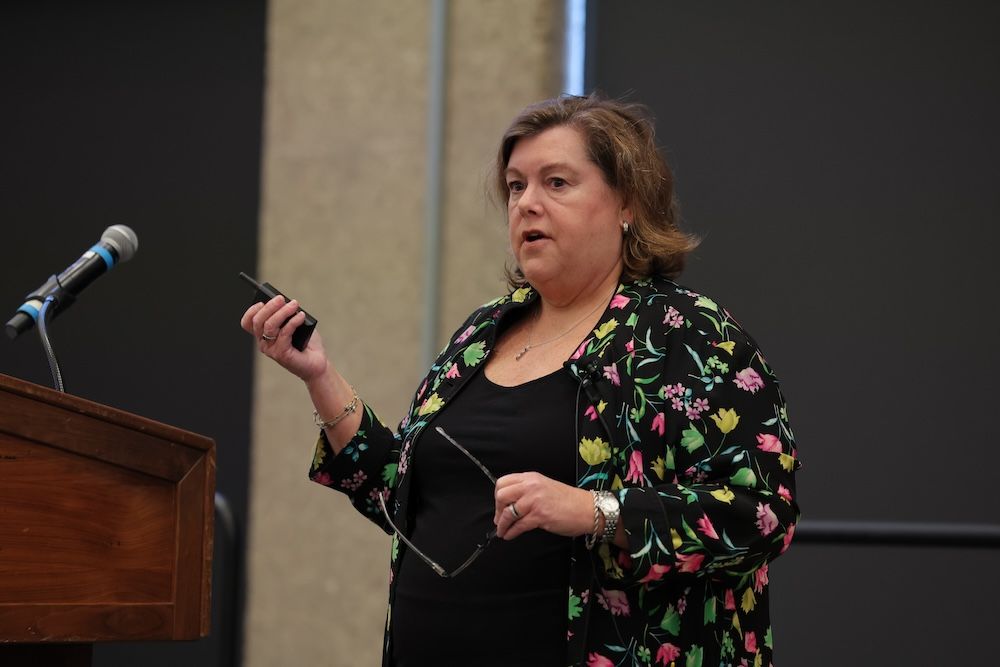
To close the day, the NMDSI welcomed Ann (Gregg) Skeet, senior director of leadership ethics at the Markkula Center for Applied Ethics, to examine the critical intersection of ethical considerations and emerging technologies and discuss shifting norms around leadership accountability in an age of AI.
During her presentation, Ann shared the five stages for companies to move through to design an “ethics blueprint” and the importance of each step. She also shared an ethics toolkit outlining eight of the most useful skills needed to implement an ethics blueprint in an organization.
Learn more about Ann’s work and access free ethics resources via the Markkula Center’s website.
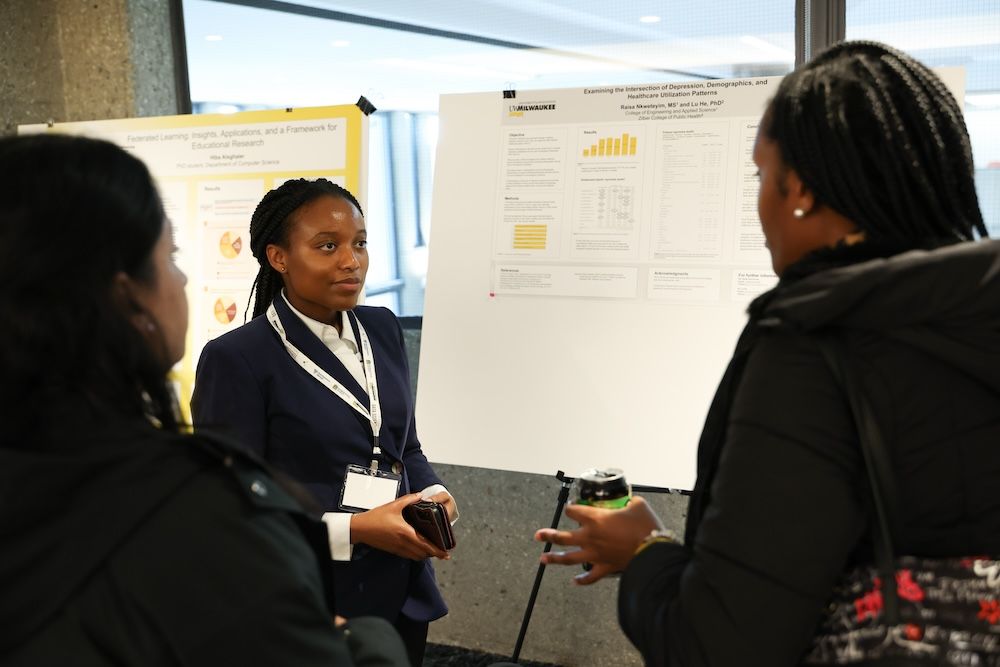
Finally, the symposium concluded by showcasing more than 30 research projects highlighting AI/data science expertise from Marquette and UWM. The poster session included 11 NMDSI-funded projects.
Five presenters were recognized with the People’s Choice Award:
- Nafi Us Sabbir, Marquette, UbiWhite: Smartphone-based counting
- Md Ishrak Islam Zarif, Marquette, Voice-Enabled Robot-Assisted Rehabilitation
- Farhat Tasnim Progga, Marquette,The Potential of Storytelling
- Yizhow Lu, University of Wisconsin-Milwaukee, Data Manipulation Tool Using Shiny in R and OpenAI
- Cameron Lee, University of Wisconsin-Milwaukee, Grip Strength Decline and Its Determinates


